The Most Beautiful Boy in the World – Kristina Lindström, Kristian Petri Interview
By Claire Bueno 3 years ago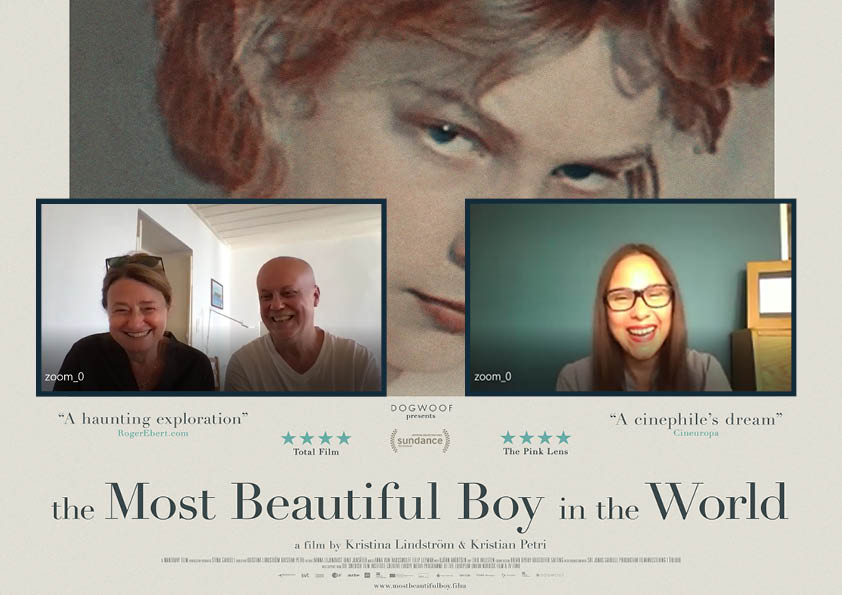
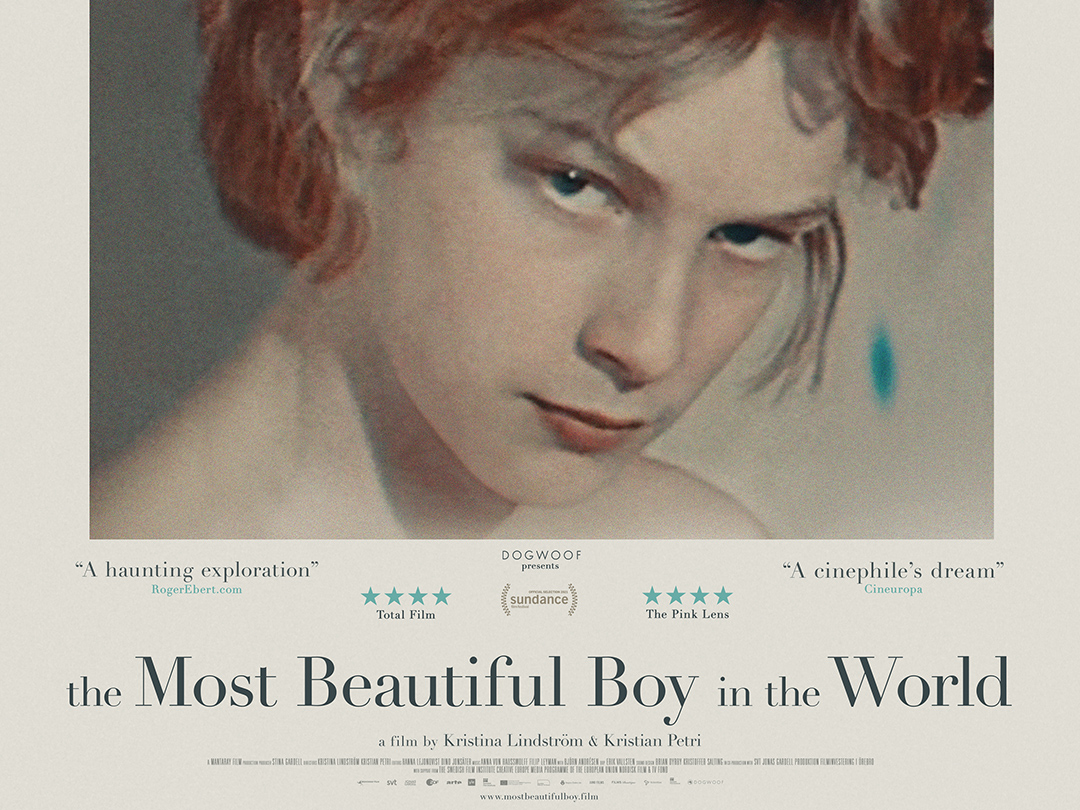
At A Glance
An intimate documentary charting the life of Björn Andrésen the enigmatic Death in Venice actor who was proclaimed ‘the most beautiful boy in the world.’

Film Details
Directed by Kristina Lindström, Kristian Petri
Written by Kristina Lindström, Kristian Petri
Distributed by Dogwoof
In UK cinemas 30th July
2021, 93 minutes,
Cast
Björn Andrésen as himself
Annike Andresen as herself - sister
Robine Román as herself - daughter
Jessica Vennberg as herself - girlfriend
Riyoko Ikeda as herself - Manga Artist
Margareta Krantz as herself - Casting director
Masatoshi Sakai as himself - Music Producer
Picked from obscurity Björn Andrésen was reluctantly catapulted onto the worldwide stage when the Death in Venice director Luchino Visconti proclaimed the character of Tadzio ‘The Most Beautiful Boy in the World.’ 50 years on the impact of portraying Tadzio has left an indelible mark on the conflicted actor. Filmmakers Kristina Lindström and Kristian Petri have crafted an intimate insight into Andrésen life, each moment immersing you deeper and deeper into this warts and all story. I had the good fortune to interview them both about the making of their documentary.

Many congratulations on the documentary because it is deeply moving story and I wondered how Björn Andrésen story presented itself to you for you to make a documentary about him?
Kristian: It is a very powerful, strong and emotional story which has sort of been there in front of us our whole life because we are we are the same generation, so we always knew about the most beautiful boy in the world, if you are a Swedish person and the same generation, you heard about him.
Kristina: He was exciting.
Kristian: He was exciting. And later in my life I came to work with him as a director for a children’s TV series and he was the bad guy scaring all the children. And we worked for a couple of months, actually and I got to know him and I quickly realised that he wasn’t so very keen on talking about Death in Venice which I had hoped to talk about (laughs). But I realised, no ok, this is not his favourite subject, so.
Kristina: No, because it has defined his life.
Kristian: Yeah, no, I totally understand that, but still I was curious as a director (laughs) but no luck there. But we had a great time and he was a very funny person and professional to work with. And later when Kristina and me, I was going to meet Björn for dinner and you asked all these questions and all of a sudden he answered (laughs).
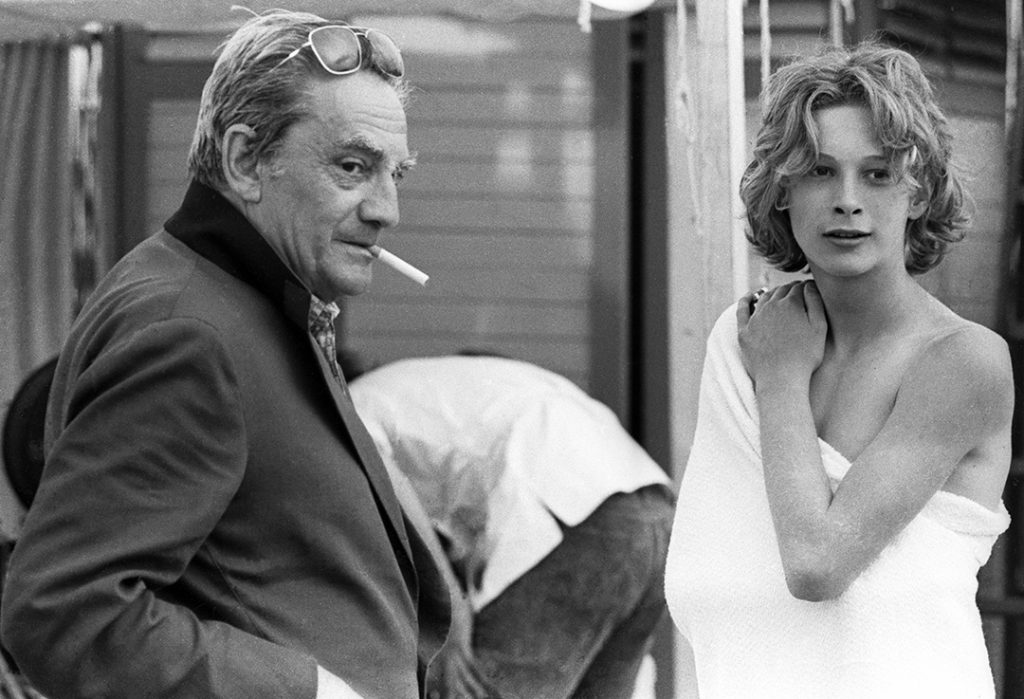
Kristina: Yeah so we started to talk about the story and the back story which I have never actually, well I knew about him, but I never knew the story of his life, so that’s how it started. When we started to talk about it and we talked with him several times, did he want to do it, the film, he had to think about it and how would we do it, and we had to present a visual idea and the way of doing it. We talked and talked and suddenly one day he said, ‘Yes, I’m on.’
Kristian: Yeah. I don’t think maybe it was not so much that he was reluctant, it was more like a very serious, you know it was good for both of us, you know. What could we expect from him? And could he expect from us? And what will the film look like? He wanted to know all these things, is it going to be a talking heads, TV documentary with a lot of Visconti experts (laughs) or, what’s happening here? We said no, this is a film about you. It’s not a film about Tadzio or Visconti, it’s a film about Björn Andrésen. And he seemed happy with the answers and we came with this is the film that we want to make. And then we shot for five years (laughs).
For a documentary filmmaker taking that much time is typical, I am one myself, it took me 12 years so I feel your pain (laughs).
The one of many things that stands out about Björn is that he is an incredibly complex man, deeply sensitive. And what I found powerful watching the film is it’s like turning the leaves of a book, and the more we learn about him, you just can’t believe what this man has been through. And I wondered for you as filmmakers were you as surprised about what you found out about his life as we are as an audience?
Kristina: Good. Yes we were, it’s as constant. It still is when we meet him today. There’s always something new his life is really larger than life and things that have happened to his life, you cannot make them up. So that really is the fact with Björn and I am so glad that you said unfold because we really wanted to build the film in that way.
Kristian: I’m super happy to as a filmmaker, yeah because we put a lot of effort in creating that feeling. I mean it’s there, so we are so super happy for that (laughs).
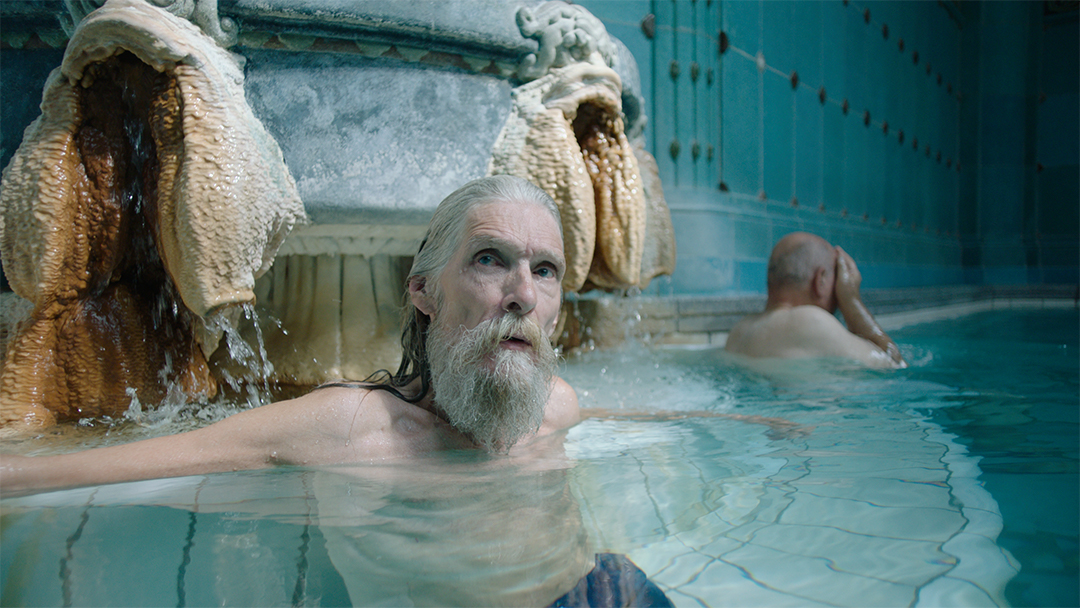
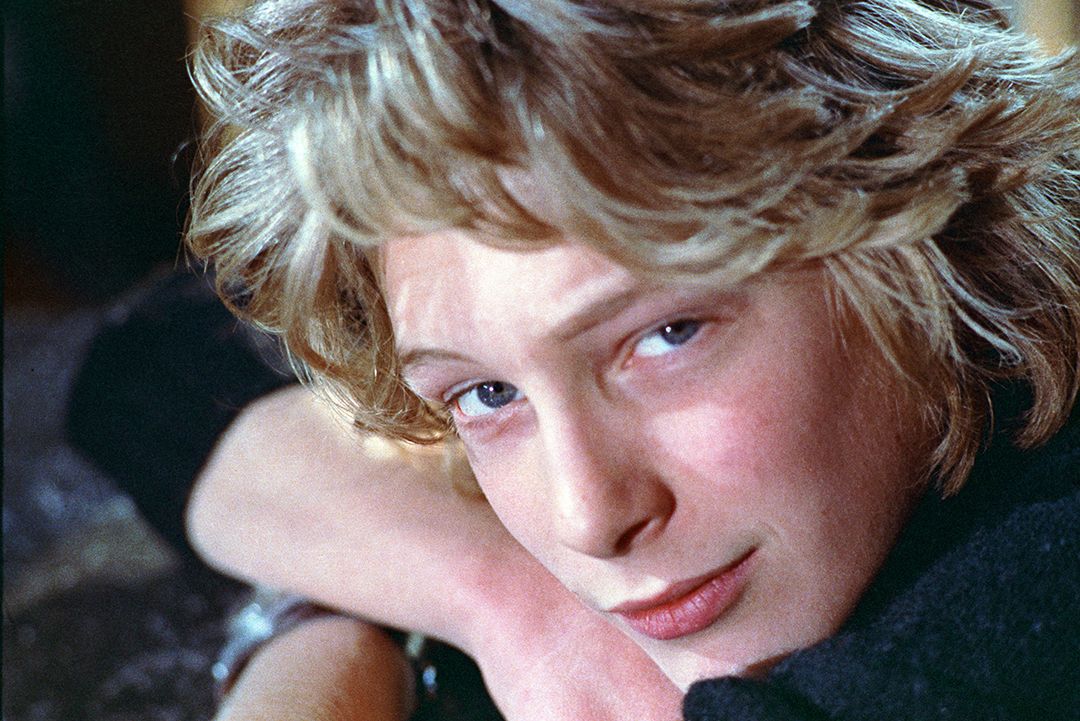
It definitely felt like that, you just kept thinking can anything else happen to this man? One tragic circumstance after another. From his childhood really, it was just fascinating, you brought so much out of the humanity out in him. Was it a fine balance to find that and were there things that you couldn’t show us because it is such a personal story, there are certain things that shouldn’t be shared with an audience.
Kristina: There is things that we have cut out and that’s not because Björn said, ‘I don’t want that to be in the film.’ But we felt that…. Yeah. It’s as you say, it’s a balance, its things; yeah.
Kristian: That is really interesting because Björn is the subject of the film in one way, but it is also he never told us you know, ‘You cannot film that, you cannot ask me that.’ He had such a belief also in the film, he wanted it to be a really good film, you know. It’s not just egocentric, ‘it’s about me, yay! I’m gonna show them,’ (laughs). He wanted it to be really good, that was always top of his agenda.
We have an expression in England, its warts and all. We see the imperfections of him as well as the virtues. We see the whole scope of his complex personality?
Kristian: Yeah. So when for instance when he wanted us to talk with his daughter he said, ‘At first I want you to meet her alone so she can say anything about me and I don’t want to be there.’
Kristina: Good. Because we had the idea that we should not do interviews about Björn with other people, that he should be with us all the time, that it was his story. But in this case with his daughter he said, ‘I want her to be alone at first.’
“He’s courageous and he wanted to respect us as filmmakers." Kristina Lindström
It’s building up a trust isn’t it? So she can get to know you. In saying that and what I have often found is when people talk about their experiences first, they kind of gush it all out and then when you go to speak to them on camera it’s a condensed version of what they wanted to say and less organic, was that something that you found?
Kristina: I know exactly what you mean and that’s terrible (laughs), but no I don’t think so. She’s such an intelligent woman. And Björn himself who has an awareness of the whole situation and being filmed because he’s an actor, so he’s never posing, he’s never uncomfortable with the camera, he’s never like summing up. Like I said before that terrible thing when people are being interviewed the second time (laughs).
Kristian: I think if I may on this subject, since we shot for five years and obviously Death in Venice was there, not like the elephant in the room (laughs). It was always somehow with us and actually somehow it changed a little bit during. Because to begin with it was the film that destroyed my life and very, very hard and had been for years. But when we shot, it seemed it became more and more nuanced in a way, it was more and more.
Kristina: Complex.
Kristian: Yeah, I (Björn) got something out of it too, you know. I had these good times and the shooting was nice, it was an adventure and blah, blah. So it’s not like black and white, you know and that was fascinating I think. He’s still is angry when he talks about the casting for instance or other parts where he felt humiliated.
Kristina: Definitely.
Kristian: And after the premiere in London and so forth and so, but he can also see the good sides.
Is it interesting for you guys as well because if you’re making the film over a five year period you’ve a real relationship with him, but as documentarians you also have to be objective. Is it difficult to detach yourself from the personal and instead looking at the bigger picture in a cinematic way?
Kristina: I understand what you mean.
Kristian: It is a discussion we were having, especially in the editing of course. I mean when you shoot, you shoot and we’ll check this later. But when you sit there in the editing room you really have to make all these decisions. And also as I said before it helped that I knew or we knew that he was sort of like… He’s a very courageous person.
Kristina: He’s courageous and he wanted to respect us as filmmakers in that sense, the artistic choices. He said, ‘You have to do your artistic choices.’
Kristian: But at the same time, we obviously wouldn’t want to do anything that would hurt him. I mean that would be the worst, I mean considering what happened to him, you know previously.
Well he’s been used to people exploiting him hasn’t he?
Kristian: Yeah, so that would be the worst.
Kristina: Every day in the editing room, every day after filming certain episodes, talking about it so it was a long journey for us as well, in this aspect of ethics.
With regards to the planning a structuring of the documentary, you obviously have an idea but you also allow yourself to be open to the organicness of documentary filmmaking and it’s not scripted necessarily. Was there anything that you found out about him along the way, or was there something that happened that changed the direction of the film?
Kristina: We knew from the beginning, we starting to edit while we were filming still, so we didn’t know certain things, which door would you open, would you open certain doors, we didn’t know that. We didn’t know if he wanted to talk about his boy, for example we didn’t know that. It was not that we had to have this in the film no. And we had a very long part of it about his father, searching for his father. And it was extremely interesting.
Kristian: That was a big, big part of it. And eventually we found the father.
Oh you did?!
Kristina: Not alive, not alive.
Kristian: No, no my God no (laughs) but I mean, there was a lot of contenders and we had DNA tests on the children and you know all of a sudden there was a match. It was great material but that was some kind of other story, it became almost like a detective story and in the end it was the last creative decision we made to take it away. Because it made the film, it took away from the story of the mother, the boy, the film, everything, you know, that was much more important.
Kristina: And also I think the things that were more important for him, we left in the film. Because it was interesting, it was an adventure for him, but it didn’t mean that much to him.
Kristian: Because he had lived his whole life without this person so. But it’s simple now he knows (laughs).
Kristina: But his daughter has a connection with a new family.
Kristian: Yeah with her now sister and that’s really beautiful.
That’s amazing!
And you can’t make a documentary of a child star of Death in Venice and not use licenced material. Did you licence the material or opt to use fair use?
Kristina: Exactly. Definitely licenced for worldwide use, certain parts of it. It was cleared by the production company and it was easier than I thought.
Kristian: Yeah, I can’t remember the figures but we survived (laughs).
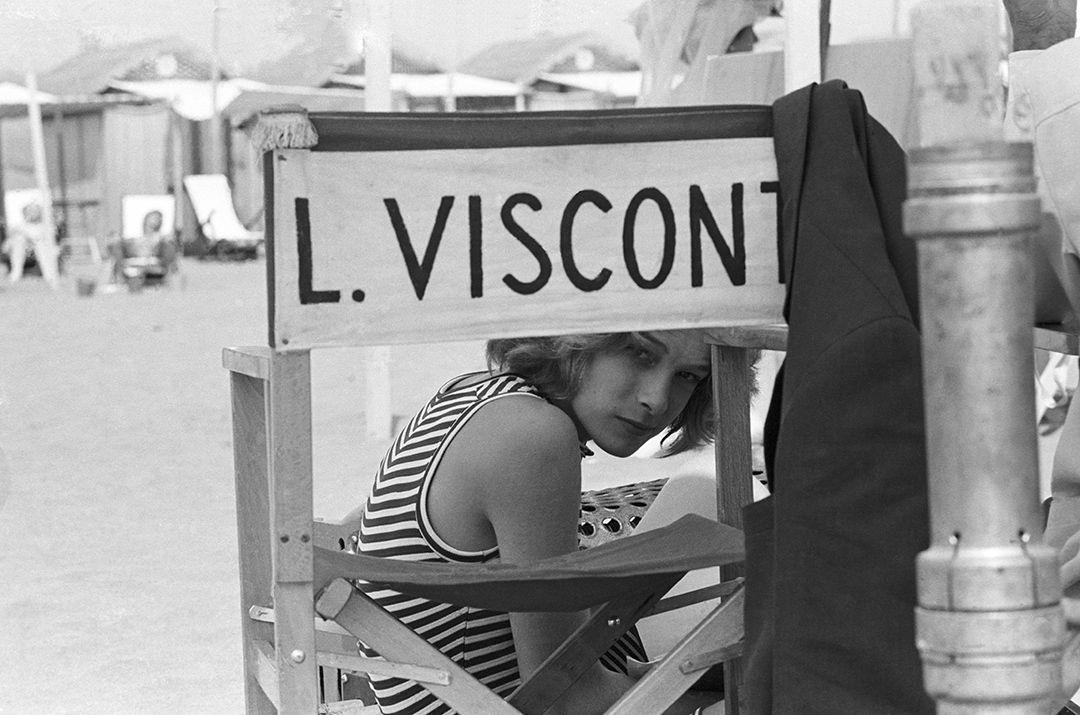
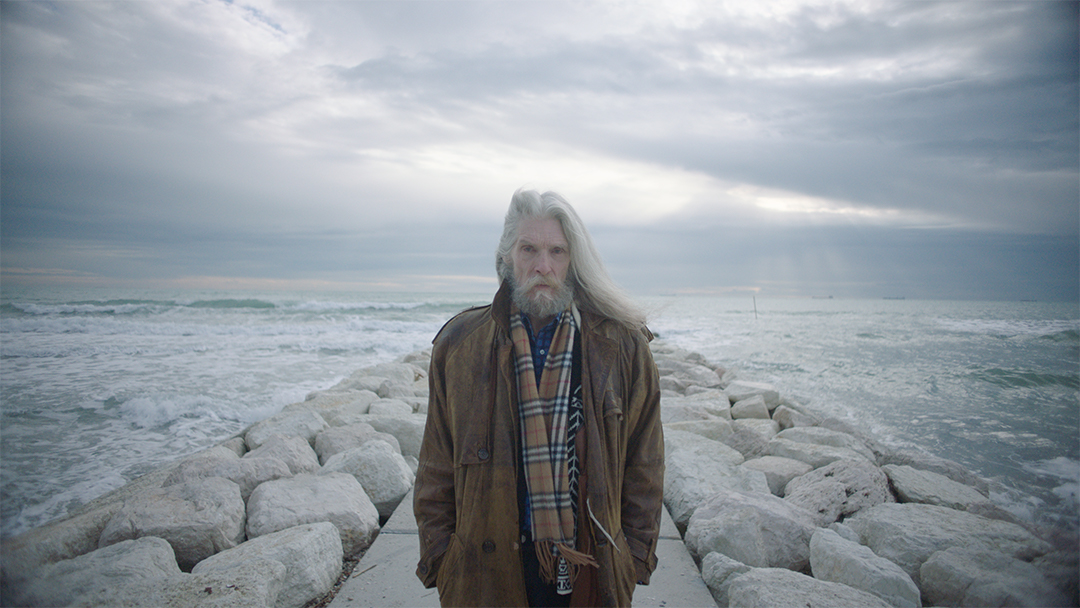
Tip for the Filmmaker - Have an open mind!
As a documentary filmmaker myself, I am interested in any advice for other documentary filmmakers?
Kristian: I think one really great experience from this film, I mean every documentary film is totally different of course, but this film. The luxury of documentary filmmaking if you can make it is time, obviously, as you know. And patience and waiting, waiting for things to happen, not forcing them not to have a lot of ideas in your head that you know the answers and you just ask questions because you want to the right answers. You have to be very flexible and you have to have an open mind and eyes, and wait.
Kristina: And don’t have a breakdown when things don’t turn out (laughs). Because there are so many things that happen what we. I mean Björn told us he was a friend of Carrie Fisher and we wanted to interview her.
Kristian: They had a relationship.
Kristina: She sadly, she died.
Kristian: So that’s great we’ll call Carrie and we go there.
Kristina: There were two interviews, people living in Paris connected to this world, in Paris (laughs). We were just landing in Paris and I switch on the cell phone; ‘unfortunately the meeting is cancelled.’ That was the last month of editing (laughs).
Kristian: And on the other hand one of his closest friends, a childhood friend of his sadly died just before we were shooting. We decided to shoot and we met him and he was a great person, wonderful, and then he died a couple of months later. But on the other hand there are good things which you don’t know about that happen.
The Most Beautiful Boy in the World - Official Trailer
Claire Bueno
Claire Bueno is a film journalist, presenter and interviewer, having moderated BAFTA, Royal Television Society (RTS), Women in Film and Television (WFTV), and Apple Store Q&As and hosted Comic Con panel talks. Claire is the founder of Premiere Scene Magazine and has had the privilege of interviewing esteemed artists including Tom Cruise, George Clooney, Brad Pitt, Sir Anthony Hopkins, Sigourney Weaver, Emily Blunt, Samuel L Jackson, James Cameron and Andy Serkis.
As a media coach Claire works with leading personal publicists, HBO, Netflix, Sky, ITV, Penguin Random House, the BFI, DDA, MacMillan and Premier, offering practical coaching sessions and safe environment for talent to perfect their interview technique before facing the press. She has extensive experience working with emerging and seasoned professionals and where English is not their first language.
Additionally, Claire is the producer of the critically acclaimed feature documentary CLEANIN’ UP THE TOWN: Remembering Ghostbusters and the upcoming TOO HOT TO HANDLE: Remembering Ghostbusters II.
